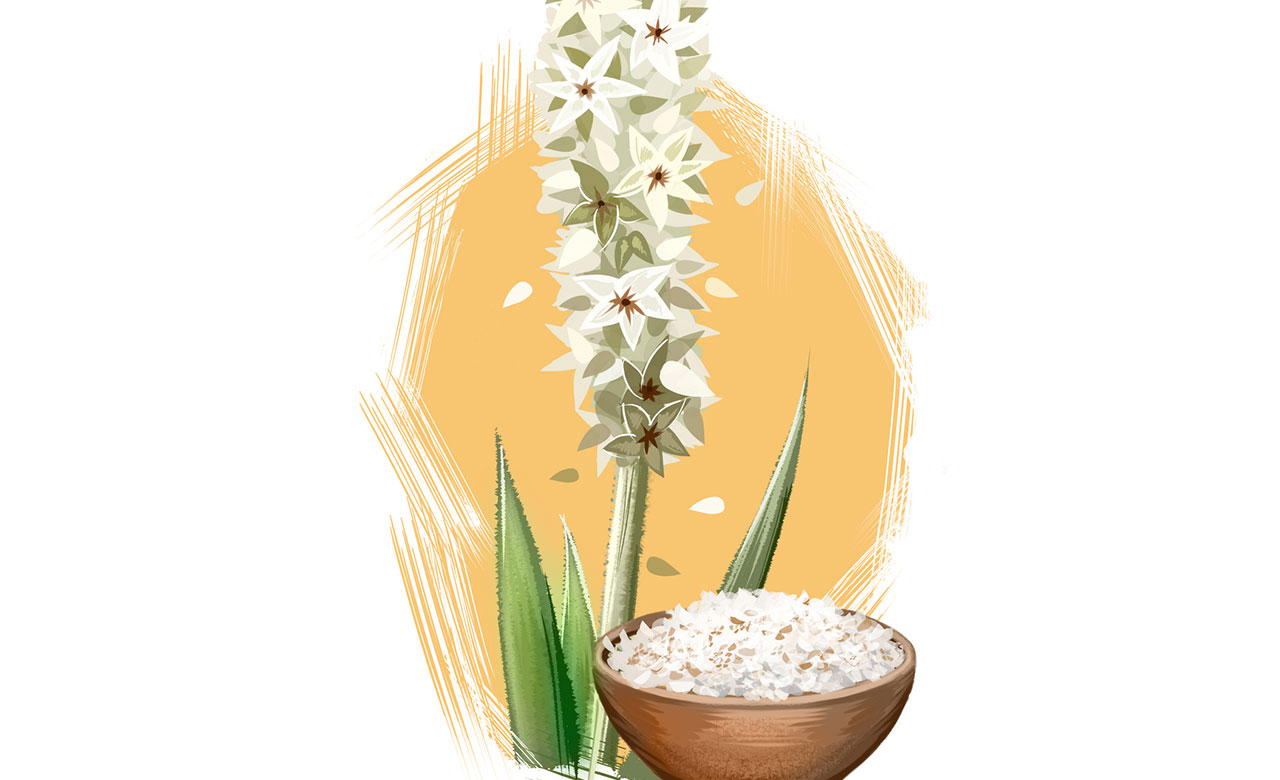Mickie Cathers
A high intake of dietary fiber is associated with extensive health benefits including lower cholesterol and a reduced risk of heart disease. Psyllium husk is a popular dietary fiber supplement widely used as a gentle bulk-forming laxative and is probably best known as the main ingredient in Metamucil. This concentrated hit of soluble fiber promises to help lower cholesterol, relieve constipation and diarrhea, regulate blood glucose levels, treat intestinal issues, and contribute to weight loss.

Background
Psyllium is a shrub-like herb (Plantago ovata) that grows worldwide, most commonly in the Mediterranean and India. The name is derived from the Greek word for “flea” (psýllos) owing to thousands of small seeds on the plant. These gel-coated seeds are harvested from the herb, and the husk is removed and minimally processed to expose the soluble and insoluble fiber.
Much like other sources of fiber found in foods such as barley, beans, legumes, seeds, nuts, oat bran, and some fruits and vegetables, psyllium contributes to overall digestive health. In the small intestine, fiber drives metabolic effects such as lowering cholesterol and improving glycemic control. In the large intestine, fiber provides a laxative effect by binding with water and digestive fluids, to soften or bulk stool.
Psyllium husk boasts more fiber than other foods in similar portions. A single teaspoon of ground psyllium husk provides nearly 8 times more soluble fiber by weight compared with oat bran.
Psyllium is also a prebiotic which promotes healthy colonies of probiotics to grow in the gut, improving digestion and strengthening the immune system.
Most Americans do not consume the recommended amount of fiber. The Institute of Medicine recommends 25 g/day of dietary fiber for women and 38 g/day for men. The average intake of fiber for American adults has been reported to be only 17 g/day.
Is there a benefit?
Many well-designed studies have shown that psyllium husk relieves common GI complaints such as constipation and mild to moderate diarrhea. By soaking up water in the digestive tract, psyllium produces more bulk, which stimulates the intestines to contract and contributes to stool that is easier to pass.
Psyllium husk has also been shown to provide significant relief for abdominal pain, bloating, and distension as well as gas from those suffering from irritable bowel syndrome (IBS).
Diets high in fiber are associated with lower triglyceride levels and a lower risk of cardiovascular disease. Adding soluble fiber such as psyllium husk to the diet has been shown to lower cholesterol. A 2021 systematic review and meta-analysis of randomized controlled trials published in Nutrition, Metabolism & Cardiovascular Diseases by Schoeneck and Iggman found foods high in soluble fiber, including psyllium, resulted in moderate LDL cholesterol reduction.
Psyllium husk can help maintain a healthy glycemic balance and affect body weight through increased satiety. Several studies suggest people with type 2 diabetes who add 10 grams of psyllium daily saw improved blood glucose levels. A 2019 critical review by Jane and colleagues in Nutrition showed that the addition of psyllium improved blood lipid profiles, glycemic response, and increased satiety. Another study showed sustained weight loss of an average of 3.3 kg in the treatment group supplementing their diet with 3.5 grams psyllium husk twice a day before breakfast and dinner.
Dosage
Psyllium husk is widely available in a variety of forms, such as a capsules, tablets, or powder meant to be mixed with water. Psyllium is also found in cereal. In 1998, FDA approved Kellogg Co.’s promotion of psyllium as having positive potential health benefits.
Recommended dosages for adults suffering from constipation and IBS range from 3.5 g to 7 g mixed in 8 oz of water 1–3 times daily.
What to tell your patients
Psyllium husk is an easy way to increase daily fiber on occasion or regularly added to a healthy diet to help promote overall digestive health. Psyllium husk has laxative effects and potential adverse effects including gas, bloating, and abdominal cramps.
While proven safe to take 1–3 times a day with a full glass of water, it’s preferable to start psyllium husk slowly and monitor reactions. Advise patients to follow the directions on the package and drink at least 6 to 8 glasses of water daily when taking psyllium husk. Patients with trouble swallowing, or esophageal or GI issues should not take psyllium husk and those with kidney disease should speak with their health care provider before using the supplement. Contraindications include taking antidepressants, carbamazepine, diabetes medications, cholesterol-lowering medications, digoxin, and lithium. Psyllium husk should not be combined with these drugs. ■